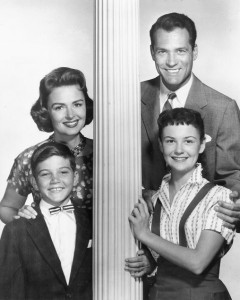The other week at Mass, I remained in the pew when everyone else got up for Communion. I can’t remember whether I was praying fervently or daydreaming or nodding halfway off — the difference is sometimes academic – but in any case, my eyes were closed. Then I felt a whack on my shoulder. Turning to face the whacker, I opened my eyes and beheld an usher.
“You can go now,” he stage-whispered, waving me toward the end of the line.
I managed – quickly, thanks be to God, and without sounding too much like the young Jack Nicholson — to explain that I knew I could, but that I shouldn’t. Whether he grasped my meaning fully I can’t say. Moving on to the next pew, he wore the air of a grown son humoring a demented father.
It’s often said that the health of a parish can be judged by measuring the length of its Confession lines against the length of its Communion lines. That sounds broadly correct but imperfect. At least implicitly, it divides the faithful into the docile and tractable who both confess and commune regularly, and the ignorant or rebellious who commune without confessing.
But what about people who refrain from communing because they know they’re in a state of sin but can’t, for various reasons, bring themselves to repent with a firm purpose of amendment? By playing the game straight in their way, they help pad their parish’s health rating. To reduce the prevalence of unworthy reception, it might be helpful to give them a shout-out.
Actually, in the synoptic Gospels, they get one, in the person of the young man and keeper of the commandments whom Jesus instructs to sell his possessions and donate the proceeds to the poor. Having received his marching orders, he rejects them, but he does it reverently and in good faith. None of the accounts have him sneering back, “Some Good Teacher you turned out to be! I’ll try my luck with Zeus.” He doesn’t try to negotiate with Jesus or soft-soap him. When called directly, and rather abruptly, to make the most extravagant sacrifice this side of life and limb, he reacts the same way many people would.
Even by Gospel standards, this person isn’t a very well-developed character – you could call him a walk-on. But the few clues tend to depict him as an earnest seeker after the truth. (In Mark’s version, he kneels before Jesus, something the average Pharisee wouldn’t do.) For those reasons, even though Matthew and Mark report he “went away,” I have a hard time believing he stayed gone for good. This is a wishful reading, of course, but it’s a wholesome wish. We who can’t resolve to shed the worldly baggage of sin might take this somewhat sympathetic portrayal as a reminder that God doesn’t rank us with Herod.
By my most modest estimate, I commit at least one mortal sin every six to eight waking hours. In my life, I’ve devoted myself to a number of self-improvement projects and even succeeded at a few. But every one of them demanded a kind of obsessiveness that made living life beyond the campaign of the moment exceedingly difficult. And the targets were never anything so close to my minute-to-minute existence as the habits I’d have to extirpate given a firm purpose of amendment.
The upshot is that I receive maybe three or four times every year. Timing is essential here – those occasions are usually vigil Masses that commence too soon after Confession to give me much chance to re-stain my soul.
As the episode with the baffled usher illustrates, some people simply aren’t used to non-communicants. During one early-morning Mass at St. Paul the Apostle Church in Manhattan, I approached the celebrant with my arms crossed. (This was before I had been properly briefed on how barbarous an abuse of the liturgy abuse this constitutes.) The poor priest tried to thrust the Host into my mouth, forcing me to block his hand with the crux of my arms and clamp my mouth shut. Not one to back down from a challenge, he tried again. Once again, I parried, this time shaking my head vigorously and making a sound like “NUH-UH” through closed lips.
Father did, eventually, catch on and bless me. But for a few moments, the two of us were on the verge of re-enacting one of those Looney Toons sketches where Bugs uses reverse-psychology on Daffy (“You be quiet – he doesn’t have to shoot you now!” “Shoot me now! Shoot me now!”). Looking back, I can say in all honesty that, at no time before or since, have I had so much fun on a Communion line.
Fun is, of course, well beside the point here, but it seems to me that refraining from Communion is a practice that deserves to be promoted. The only place I’ve seen it done was on laminated cards sprinkled liberally alongside songbooks in the backs of pews. Using bullet points to list categories of people ineligible to commune, they showed all the pastoral sensitivity of a warning on a Viagra bottle (and, I’m guessing, were every bit as effective as a deterrent).
So how to lend a positive spin to staying put when the rest of the pew stands up? Well, there’s always the language of relationships. Abstaining from Communion doesn’t represent a complete severance of a Catholic’s relationship with God; on the contrary, it maintains that relationship on a basis of honesty, with no false promises made or privileges unjustly claimed. Last year in The Spectator, Louise Mensch, who stopped presenting herself for Communion following her remarriage, wrote of being “in good spirits, as I hope for God’s mercy,” with the vital stipulation “But I do not presume upon it.”
It might also be emphasized that abstaining from Communion needn’t represent a complete severance of a Catholic’s relationship to the parish, or the Church as a whole. Non-communicants are welcome to attend Mass, hear the Word and adore the Blessed Sacrament in the tabernacle. My Aunt Betty spent years out of Communion while waiting for the Diocese of Trenton to annul her first marriage. During that time, she continued singing in the choir, and even switched parishes when she determined that her pastor was an idiot – a fairly full ecclesial life.
Pope Francis has spoken constantly of evangelizing to people “on the peripheries.” This turn of phrase puts me in mind of C.S. Lewis’ Memorial Lecture to King’s College, where he warns of the near-occasion of sin posed by the desire to gain entry into an Inner Ring, or an elite. “Of all the passions,” he writes, “the passion for the Inner Ring is most skillful in making a man who is not yet a very bad man do very bad things.” If the Church has peripheries of its own, it seems to me we can fulfill Francis’ mission, and take advantage of Lewis’ wisdom, by making those peripheries as pleasant as possible – by distinguishing them from outer darkness.















